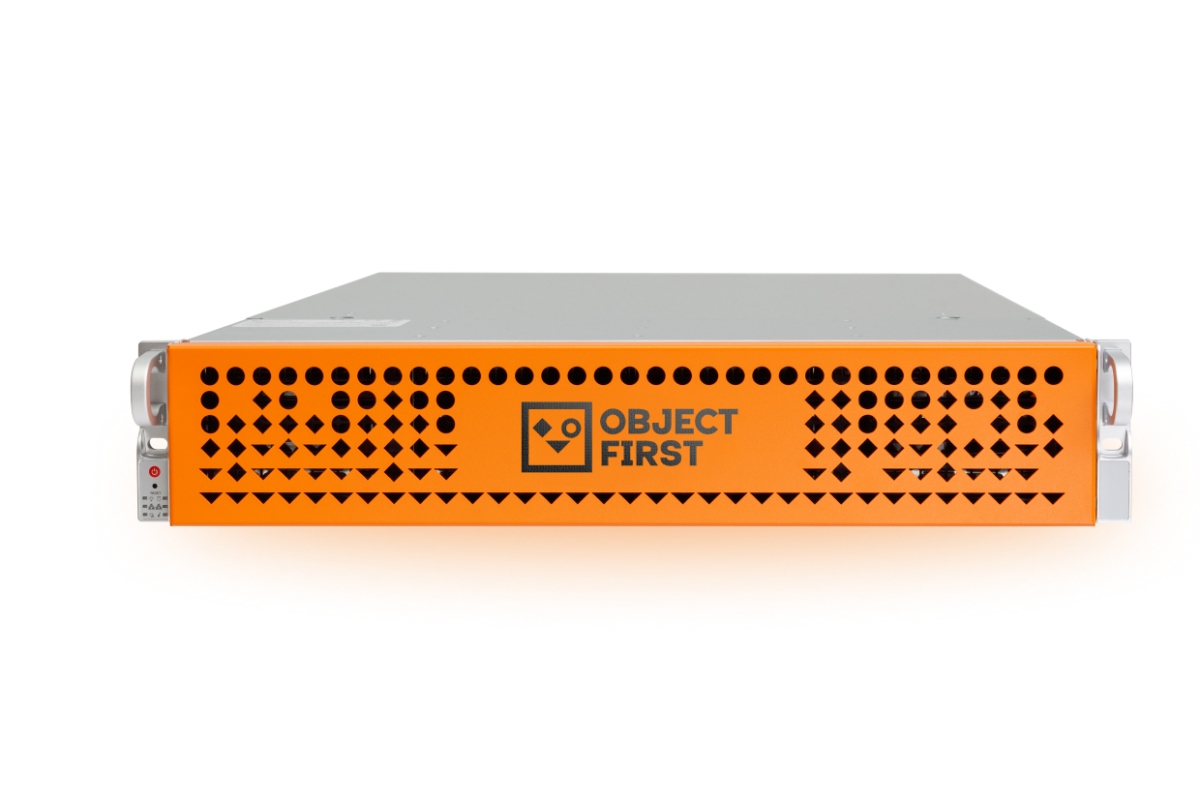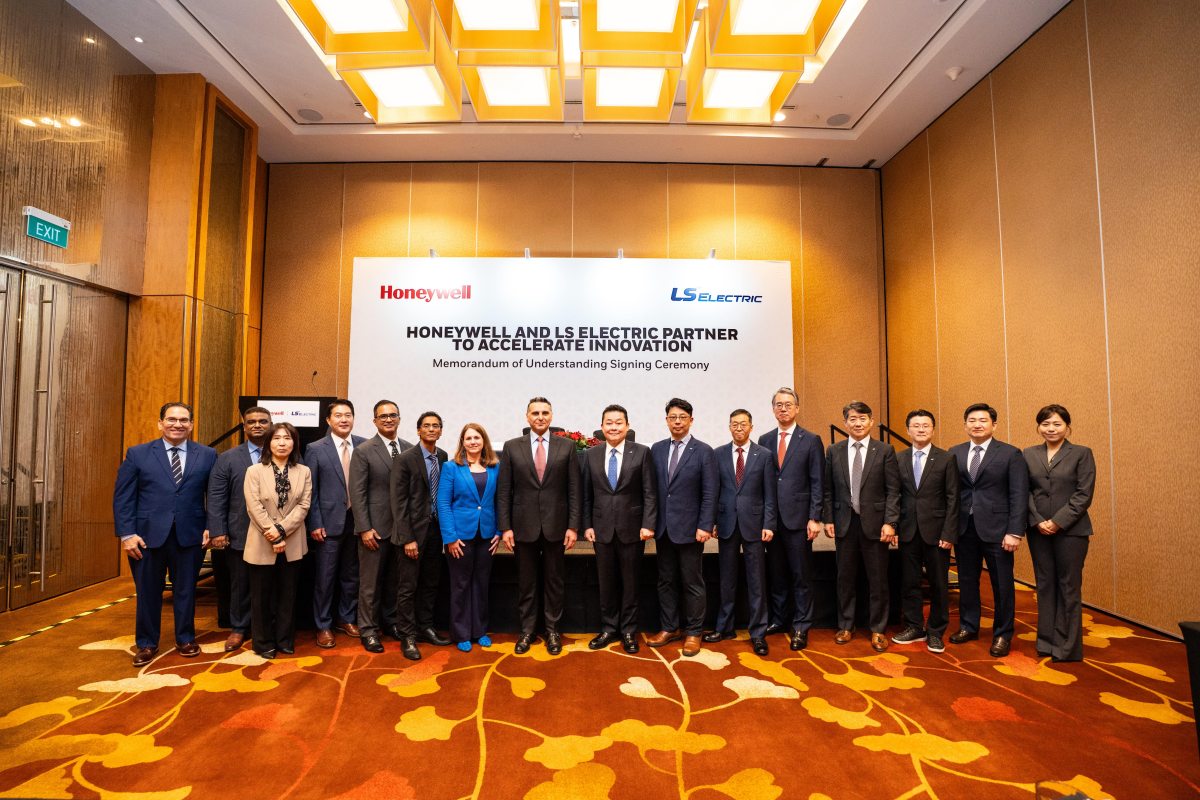News
Data Centre Infrastructure News & Trends
Innovations in Data Center Power and Cooling Solutions
News
Schneider Electric advances 800 VDC power systems
Schneider Electric, a French multinational specialising in energy management and industrial automation, has outlined its latest developments in 800 VDC power architectures, designed to meet the growing demands of high-density rack systems across next-generation data centres.
The company says the move reflects a broader industry transition towards higher power densities and greater efficiency, as artificial intelligence (AI) workloads drive increased compute intensity.
Schneider Electric is developing its approach around system-level design, integrating power conversion, protection, and metering to ensure performance, scalability, and safety.
Jim Simonelli, Chief Technology Officer for Data Centres at Schneider Electric, explains, “The move to 800 VDC is a natural evolution as compute density increases and Schneider Electric is committed to helping customers make that transition safely and reliably.
"Our expertise lies in understanding the full power ecosystem, from grid to server, and designing systems that integrate seamlessly and operate predictably.”
Collaboration with NVIDIA on 800 VDC sidecar
Schneider Electric is working with NVIDIA to develop an 800 VDC sidecar capable of powering racks of up to 1.2 MW.
The sidecar is designed to support future generations of NVIDIA GPUs and accelerated computing infrastructure by converting AC power from the data centre into 800 VDC.
According to Schneider Electric, the design enables safe and efficient megawatt-scale rack power delivery while helping to minimise infrastructure and material costs. The sidecar includes:
• Modular power conversion shelves• Integrated short-term energy storage for load smoothing and backup• Live Swap capability for safer maintenance• High energy efficiency
The company says the development reflects its wider 'system-level' approach, which focuses on the complete power infrastructure rather than isolated components.
This includes optimising conversion technology, intelligent metering, and integrated protection systems to improve operational efficiency and support scalable, high-density deployments.
Safety, reliability, and validation
Schneider Electric reports that its 800 VDC power systems are backed by extensive modelling, simulation, and testing. This includes fault current and arc flash analysis, as well as certified laboratory environments designed to replicate real-world conditions.
The company’s safety and validation processes are aimed at ensuring predictable performance, simplified maintenance, and operational resilience, which are all key factors for facilities deploying high-density AI and high-performance computing racks.
Dion Harris, Senior Director of HPC, Cloud, and AI Infrastructure Solutions GTM at NVIDIA, says, “Scalable power architectures are the foundation for next-generation AI infrastructure that maximises both performance and efficiency.
"NVIDIA and Schneider Electric are building on our longstanding partnership to design and deliver advanced 800 VDC power systems that will support AI applications driving the industrial AI revolution.”
For more from Schneider Electric, click here.
Joe Peck - 14 October 2025
News
News in Cloud Computing & Data Storage
ZainTECH launches Microsoft Azure ExpressRoute in Kuwait
ZainTECH, the digital solutions and cloud services arm of Kuwait-based Zain Group, in collaboration with Zain Kuwait and Zain Omantel International (ZOI), has announced the availability of Microsoft Azure ExpressRoute on the Azure Marketplace.
The move enables government and enterprise customers in Kuwait to access secure and private connectivity to Microsoft Azure directly through the Azure Marketplace.
The listing allows organisations with existing Azure agreements to purchase ExpressRoute using their existing Microsoft Azure consumption credits, designed to simplify procurement and integration with cloud infrastructure.
Dedicated, compliant cloud connectivity
ExpressRoute provides a dedicated, low-latency connection to Microsoft data centres in the UAE and Europe.
According to ZainTECH, the service is aimed at supporting mission-critical workloads that require high performance, enhanced security, and compliance with Kuwait’s national data residency and regulatory standards.
Andrew Hanna, CEO of ZainTECH, comments, “Helping governments and enterprises become more digital, intelligent, and resilient is what all Zain entities aim for.
"The availability of ExpressRoute on the Azure Marketplace is a game-changer for customers in Kuwait. It removes friction from the procurement process and makes it easier than ever for entities to leverage Microsoft’s cloud, using their existing agreements and credits.
"This is how we accelerate real transformation: by combining secure, high-speed connectivity with operational simplicity.”
ZainTECH says that its collaboration with Zain Kuwait, ZOI, and Microsoft establishes a new framework for compliant and resilient cloud connectivity in Kuwait.
The initiative also aligns with Kuwait’s Vision 2035 strategy, supporting national digital transformation efforts and enabling government and enterprise modernisation.
Joe Peck - 13 October 2025
Data Centre Infrastructure News & Trends
Enterprise Network Infrastructure: Design, Performance & Security
News
GNM launches new PoP in Paris
GNM, a backbone internet provider and telecom operator, has launched a new Point of Presence (PoP) at 137 Boulevard Voltaire in Paris, expanding its Western European footprint and giving French operators direct access to its backbone and interconnection services.
The company says that strong growth in France over the past year drove the decision to expand into the capital.
The Paris site connects regional operators with lower-latency routes to Frankfurt, Amsterdam, London, and Central Europe, integrated with GNM’s 20,000 km backbone and 80+ PoPs in 21 countries.
From Paris, GNM says it offers services including IP Transit with Tier-1 upstreams and advanced BGP community control; GNM-IX peering, with more than 650 connected networks; Ethernet / L2VPN with SLAs and end-to-end traffic control; and Remote IX for access to European Internet Exchanges without physical presence.
Ahmed Eidarous, International Development Manager at GNM, comments, “Paris is a natural step in our European expansion.
“By launching a PoP here, we are bringing French operators closer to our backbone and service portfolio, enabling them to exchange traffic more efficiently and access international hubs with minimal latency.”
With the Paris PoP online, GNM says it has both expanded its presence in Western Europe and strengthened connectivity for regional and global customers.
For more from GNM, click here.
Joe Peck - 13 October 2025
Data Centre Infrastructure News & Trends
Enterprise Network Infrastructure: Design, Performance & Security
News
LINX achieves 25 x 400GE port count milestone
The London Internet Exchange (LINX), an internet exchange point (IXP) operator, has successfully deployed their 25th 400GE port across their global network, a major milestone within the wider industry's growth.
The first 400GE port was provisioned in 2021, with demand for ultra-high bandwidth connectivity surging since then, driven by the exponential growth in cloud services, video streaming, gaming, and AI workloads.
A single 400GE connection delivers four times the capacity of a standard 1000GE port, enabling networks to consolidate traffic, reduce operational complexity, and build in resilience, future-proofing their infrastructure.
Investing in the future
LINX has invested heavily in Nokia’s next-generation hardware and optical technologies to enable 400GE delivery across its interconnection ecosystems in London and Manchester.
This investment aims to ensure members can scale quickly and efficiently while maintaining the resilience and reliability that underpin the global internet.
Jennifer Holmes, CEO of LINX, comments, “Reaching 25 active 400GE ports is a testament to the evolving needs of our members and the strength of our technical infrastructure.
"We’ve seen a clear shift towards high-capacity services, with our larger delivery networks upgrading first to 400GE.
"In the last 12 months UK ISPs are now seeing the demand for the service and are upgrading in London and Manchester, a positive sign of effective network traffic management or regional peering.
"This evolution demonstrates how network operators of all sizes are adapting to keep pace with the demands of modern digital services.”
As digital transformation accelerates globally, LINX says it continues to extend its reach beyond the UK, also supporting interconnection platforms in the US and Africa.
For more from LINX, click here.
Joe Peck - 10 October 2025
Data Centre Business News and Industry Trends
Insights into Data Centre Investment & Market Growth
News
365 Data Centers appoints new CEO and President
365 Data Centers (365), a provider of network-centric colocation, network, cloud, and other managed services, has announced the appointment of Derek Gillespie as Chief Executive Officer (CEO) and Steve Amelio as President.
This leadership transition follows the planned retirement of co-founder and CEO Bob DeSantis, who will continue to serve as a Board Member and strategic advisor to the company.
Who's who
Derek Gillespie brings over two decades of experience across the data centre and telecommunications industries.
The company says that since joining 365 as CRO in 2024, Derek has played a role in expanding the company’s market reach, strengthening customer relationships, and executing strategic acquisitions.
He will continue to act as CRO in addition to taking on the new role of CEO.
Steve Amelio, who has been with 365 since 2019, has reportedly helped build the company’s operational and financial foundation.
As well as becoming President, he will continue to serve as CFO, overseeing finance and administration while leading day-to-day operations to ensure continued customer satisfaction and scalable growth.
Bob DeSantis, co-founder and Board Member of 365 Data Centers, comments, “Derek and Steve have been central to 365’s success and are ideally suited to lead the company into its next phase of growth.
“Their leadership, deep industry expertise, and shared vision will ensure continuity while propelling the company forward as a trusted infrastructure-as-a-service and managed services provider.”
During Bob’s tenure, 365 has transformed from a collection of eight standalone data centres into a US-wide, interconnected platform with 20 facilities, 80MW of capacity, 1,200 customers, and a network spanning key edge markets.
“We are honoured to carry forward the incredible momentum that Bob and the team have built,” says Derek Gillespie, CEO at 365 Data Centers. “Our focus remains on delivering reliable, high-performance infrastructure solutions that empower our customers to grow and innovate.”
“This is an exciting time for 365,” adds Steve Amelio, President of 365 Data Centers. “We look forward to building upon our strong operational backbone and customer-first culture as we continue to scale and strengthen our network-centric platform.”
For more from 365 Data Centers, click here.
Joe Peck - 10 October 2025
News
News in Cloud Computing & Data Storage
Products
Object First launches 'ransomware-proof' storage
Object First, a US provider of storage appliances, has introduced Ootbi Mini, a compact immutable storage appliance designed for remote and branch offices, edge environments, and small businesses using Veeam for backup.
The device is intended to protect local backup data against ransomware attacks without requiring a traditional data centre setup.
Available in 8, 16, and 24 terabyte capacities, Ootbi Mini brings the company’s existing enterprise-level security to a smaller form factor.
Built on 'zero trust' principles, it provides what the company describes as “absolute immutability”, meaning that no one - including administrators - can alter its firmware, operating system, storage layer, or backup data.
The device offers the same data protection, user interface, and Veeam integration as Object First’s existing Ootbi systems, with minimal setup required.
Ootbi Mini will be available for purchase or through a subscription model, with deliveries due to begin in January 2026.
New additional features
Alongside Ootbi Mini, Object First has announced several additional updates:
The first, Ootbi Honeypot, introduces early warning protection against cyberthreats targeting Veeam Backup and Replication (VBR). The feature, available in version 1.7 at no additional cost to current customers, deploys a decoy VBR environment to detect suspicious activity.
If a threat is detected, Honeypot immediately sends an alert via the customer’s chosen communication channel.
The company has also launched a beta programme for Ootbi Fleet Manager, a cloud-based platform that allows customers to monitor and manage their entire Ootbi fleet from a single dashboard.
The system provides granular monitoring, reporting, and hardware health insights, enabling customers to maintain visibility across distributed environments.
Phil Goodwin, Research Vice President at IDC, comments, “Organisations running Veeam can benefit from storage technologies that combine immutability, simplicity, and resilience.
"With Ootbi Mini, Honeypot, and Fleet Manager, Object First is expanding its ransomware-proof portfolio to meet the needs of businesses of all sizes.”
David Bennett, CEO at Object First, adds, “Our mission is to make ransomware-proof backups simple, powerful, and accessible for every Veeam user. With Ootbi Mini, any organisation can achieve enterprise-grade immutability within a small footprint.
"Honeypot strengthens cyber resilience by providing early threat detection, while Fleet Manager simplifies how customers monitor their deployments. Together, these innovations reinforce our commitment to secure, straightforward, and reliable backup for Veeam users.”
For more from Object First, click here.
Joe Peck - 10 October 2025
Data Centre Operations: Optimising Infrastructure for Performance and Reliability
Edge Computing in Modern Data Centre Operations
News
Duos Edge AI expands edge DC network in Texas
Duos Technologies Group, through its subsidiary Duos Edge AI, a provider of edge data centre (EDC) systems, has deployed a new EDC in Waco, Texas, at the Education Service Centre (ESC) Region 12.
The facility marks the company’s sixth site in the state and aims to strengthen digital infrastructure to support local education and community development.
The project aims to expand access to reliable, low-latency computing for schools and community partners, providing the resources needed to deliver modern digital learning tools and services.
Supporting distributed computing and digital learning
The partnership with Region 12 highlights the increasing demand for distributed computing infrastructure to enable K–12 education, workforce development, and regional digital transformation across Texas.
The new edge data centre seeks to enhance bandwidth, secure data processing, and local AI capabilities, improving connectivity and efficiency throughout the region.
Doug Recker, President of Duos and Duos Edge AI, comments, “This deployment is a significant advancement in our statewide initiative to bring modern computing capabilities closer to where data is created and used.
"Our collaboration with Region 12 strengthens the foundation for next-generation learning tools, administrative efficiency, and community connectivity - all powered locally at the edge.”
Kenny Berry, Executive Director of ESC Region 12, adds, “Access to real-time, reliable data processing directly supports our educators and students.
"This edge data centre brings long-term value to our schools by enabling advanced learning technologies, improving efficiency, and reducing latency across our network.”
The deployment forms part of Duos Edge AI’s 2025 strategy to establish 15 operational edge data centres. Each facility features a modular design for rapid deployment, offering scalable compute power and high-speed connectivity in as little as 90 days.
These sites, the company says, are helping meet the evolving digital needs of the education, healthcare, and government sectors.
For more from Duos Edge AI, click here.
Joe Peck - 9 October 2025
Artificial Intelligence in Data Centre Operations
Data Centre Business News and Industry Trends
Data Centre Training & Certification Programs
News
Saudi Arabia’s first integrated data science and AI diploma
DataVolt, a Saudi Arabian developer and operator of sustainable data centres, has partnered with the Energy & Water Academy (EWA) and Innovatics to launch the Kingdom of Saudi Arabia’s first fully industry-integrated Diploma in Data Science and Artificial Intelligence (AI).
The new programme is designed to blend academic learning with practical, real-world experience, helping to prepare Saudi talent for the digital economy.
Announced at the LEARN event in Riyadh, the Diploma is approved by the Technical and Vocational Training Corporation (TVTC) and College of Excellence (CoE), and endorsed by the Ministry of Communications and Information Technology (MCIT).
It is also supported by the Human Resources Development Fund (HRDF).
Unlike traditional academic pathways, the programme combines classroom study with applied projects.
Students will work with sponsoring companies, including DataVolt, on live industry challenges, developing proof-of-concept AI applications and gaining hands-on experience that directly aligns with workforce needs.
As part of its commitment, DataVolt will sponsor five students from the first cohort and guarantee them employment after graduation. They will join the company’s operations supporting high-power-density workloads at its data centres, including its planned AI campus in Oxagon, NEOM.
DataVolt is inviting other organisations to co-sponsor the inaugural class of 100 students, with a target of 50% female participation. The first intake is scheduled to begin in November 2025.
Industry-led learning for the digital future
Rajit Nanda, CEO at DataVolt, says, “DataVolt is not only building the Kingdom’s next-generation data centres, but also the local Saudi talent to power them, ensuring the country is prepared to lead the global AI economy in the long term.
"Our investment in this first-of-its-kind Diploma demonstrates our commitment to Vision 2030 and we encourage our partners across the industry to join us in sponsoring the programme and future-proofing the local workforce.”
With AI expected to contribute around US$320 billion (£239.1 billion) to the Middle East economy by 2030, and Saudi Arabia set to see the greatest share of that value, the initiative supports the country’s Vision 2030 and the National Strategy for Data and AI (NSDAI).
The programme aims to help bridge the national skills gap and contribute to the target of training 20,000 AI professionals over the next five years.
Salwa Smaoui, CEO of Innovatics, comments, “This Diploma is not just education; it is a strategic workforce initiative. Our mission is to ensure every graduate is ready to contribute from day one to the Kingdom’s most ambitious AI projects.”
Tariq Alshamrani, CEO of EWA, adds, “EWA is proud to partner with DataVolt and Innovatics to deliver this programme. Together, we are developing the next generation of data scientists and AI professionals who will power the Kingdom’s digital future.”
DataVolt continues to expand its data centre footprint across Saudi Arabia. Earlier this year, the company signed an agreement with NEOM to design and develop the region’s first sustainable, net-zero AI campus in Oxagon.
The first phase of the 1.5 GW development, backed by an initial investment of US$5 billion (£3.7 billion), is expected to begin operations in 2028.
For more from DataVolt, click here.
Joe Peck - 9 October 2025
Data Centre Infrastructure News & Trends
Innovations in Data Center Power and Cooling Solutions
News
Honeywell, LS Electric deal to boost data centre power
Honeywell, a US multinational specialising in building automation, has announced a global partnership with LS Electric, a South Korean manufacturer of electrical equipment and automation systems, to develop and market integrated hardware and software systems for power management and distribution in data centres and commercial buildings.
The collaboration aims to simplify the integration of electrical and automation systems, improving operational efficiency, resilience, and energy management for operators of data-intensive and energy-critical facilities.
Integrated approach to power and automation
The partnership combines LS Electric’s experience in power infrastructure with Honeywell’s expertise in building automation and control systems.
Together, the companies plan to offer systems that unify power distribution and building management, ensuring load and capacity are balanced to maintain resilience and uptime.
The first joint products will include integrated switchgear and power management systems that help data centre operators control and distribute power more effectively.
Future development will focus on new electrical monitoring systems using the Honeywell Forge platform, enhanced with AI and analytics, and LS Electric’s software capabilities.
These systems will be designed to regulate energy distribution, improve efficiency, and provide predictive maintenance to reduce downtime and power quality issues.
Energy storage and grid resilience
Honeywell and LS Electric also plan to develop a grid- and building-aware battery energy storage system (BESS) for commercial and industrial buildings.
The modular BESS will integrate LS Electric’s energy storage technology with Honeywell’s dynamic energy control software, allowing users to forecast and optimise energy sourcing and costs based on grid data, weather conditions, and other variables.
The companies said the technology will help manage growing energy demand from sectors such as data centres, which currently account for between 1-2% of global electricity consumption.
Billal Hammoud, President and CEO of Honeywell Building Automation, comments, “Our collaboration with LS Electric supports our continued focus on delivering smarter, scalable solutions for the world’s most critical industries.
"As the global demand for data and energy accelerates, this partnership combines our complementary strengths to deliver intelligent infrastructure that’s both resilient and efficient.”
JongWoo Kim, President of LS Electric Power Electric, adds, “Building on our expertise in power infrastructure and energy storage systems, we are expanding globally into the data centre and industrial building markets.
"Through our collaboration with Honeywell, we will provide solutions that help large-scale operators achieve both energy efficiency and reliability.”
For more from Honeywell, click here.
Joe Peck - 9 October 2025
Data Centre Build News & Insights
Data Centre Projects: Infrastructure Builds, Innovations & Updates
News
Renewables and Energy: Infrastructure Builds Driving Sustainable Power
CleanArc adds 300 MW to planned Virginia campus
CleanArc Data Centers, a US developer of renewable-energy-powered hyperscale data centre campuses, has acquired an additional 35.4 hectares of land to expand its flagship hyperscale data centre campus in Virginia.
The expansion increases the site’s planned capacity from 600 MW to nearly 1 GW, supporting growing demand for scalable and energy-efficient digital infrastructure.
The new development will deliver an extra 300 MW of critical power capacity, enhancing redundancy and long-term resilience for hyperscale clients.
Expansion timeline and capacity growth
The first 300 MW phase of the Virginia campus is scheduled to come online in the first quarter of 2027, followed by a second phase in 2030.
The latest land acquisition enables a third 300 MW phase, currently planned for between 2033 and 2035.
James Trout, founder and CEO of CleanArc Data Centers, comments, “Securing this additional land and substantially increasing our planned capacity positions CleanArc to meet the needs of the most demanding hyperscalers.
"We’re ensuring our customers have the infrastructure they need to grow, innovate, and operate without limits today and well into the future.
"Working closely with Caroline County, this expansion will support our customers’ growth while reinforcing our dedication to sustainability and making a positive, lasting impact on the local community.”
Groundbreaking for the VA1 project is scheduled for the fourth quarter of 2025.
For more from CleanArc Data Centers, click here.
Joe Peck - 8 October 2025

Head office & Accounts:
Suite 14, 6-8 Revenge Road, Lordswood
Kent ME5 8UD
T: +44 (0)1634 673163
F: +44 (0)1634 673173









